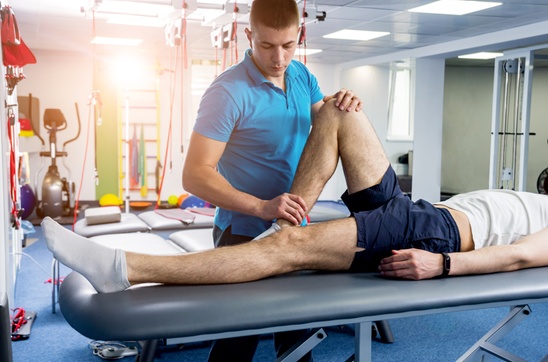Athletes can take several proactive measures to prevent sports injuries that may necessitate surgical intervention.
Here are some key strategies:
Proper Training and Conditioning:
- Strength Training: Build muscle strength, particularly in the muscles supporting key joints. This helps stabilize the joints and reduces the risk of injury.
- Flexibility: Incorporate stretching and flexibility exercises into the training regimen to enhance the range of motion and reduce muscle stiffness.
- Balance and Agility: Improve balance and coordination through specific drills. This can help prevent falls and awkward movements that lead to injuries.
Warm-Up and Cool Down:
- Always perform a proper warm-up before engaging in sports activities. This prepares the muscles and joints for the physical activity.
- Cool down after exercise to help the muscles recover and reduce stiffness and soreness.
Use Proper Technique:
- Ensure that proper techniques are used during training and competition. Incorrect form can put undue stress on muscles, tendons, and joints, leading to injuries.
- Consider working with a coach or trainer to learn and maintain proper techniques.
Adequate Rest and Recovery:
- Incorporate rest days into the training schedule to allow the body to recover. Overtraining can lead to fatigue, which increases the risk of injury.
- Pay attention to signs of overuse and take breaks as needed.
Wear Appropriate Gear:
- Use sport-specific protective equipment, such as helmets, pads, braces, and appropriate footwear. This equipment is designed to protect the body from impact and stress.
Hydration and Nutrition:
- Maintain proper hydration and a balanced diet to ensure that the body has the necessary nutrients to perform and recover.
- Consider consulting a sports nutritionist for personalized dietary advice.
Injury Prevention Programs:
- Participate in injury prevention programs that focus on exercises and drills designed to reduce the risk of specific injuries, such as ACL injury prevention programs.
Listen to Your Body:
- Be aware of and respond to pain and discomfort. Ignoring these signals can lead to more serious injuries.
- Seek medical advice if pain or discomfort persists.
Cross-Training:
- Incorporate a variety of activities in the training routine to prevent overuse injuries. Cross-training can help balance muscle development and reduce the repetitive strain on specific muscles and joints.
Regular Medical Check-Ups:
- Undergo regular medical evaluations to identify and address any potential health issues before they become serious problems.
- Consider periodic assessments by a sports medicine specialist to ensure optimal health and performance.
By following these strategies, athletes can significantly reduce the risk of sports injuries that might require surgical intervention, thereby enhancing their longevity and performance in their respective sports.





Comments